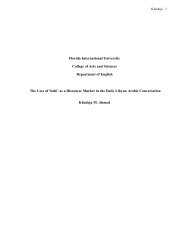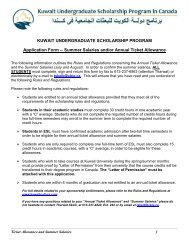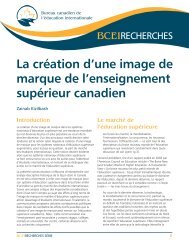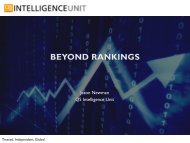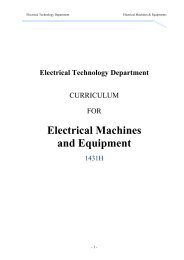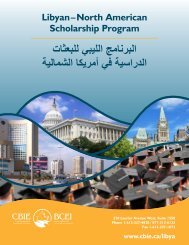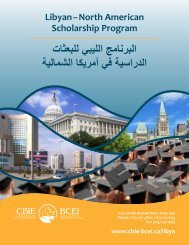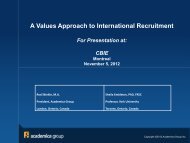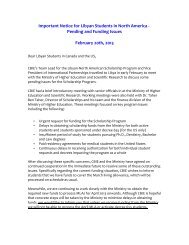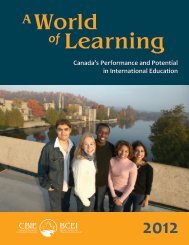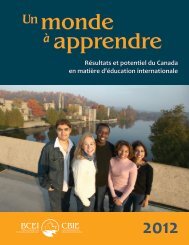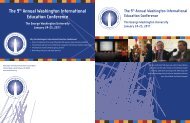Creating a New Historical Perspective: EU and the Wider World ...
Creating a New Historical Perspective: EU and the Wider World ...
Creating a New Historical Perspective: EU and the Wider World ...
You also want an ePaper? Increase the reach of your titles
YUMPU automatically turns print PDFs into web optimized ePapers that Google loves.
Learning, Teaching <strong>and</strong> Research<br />
Among <strong>the</strong> strong recommendations of <strong>the</strong> History group in <strong>the</strong> Tuning project,<br />
discussed <strong>and</strong> validated by <strong>the</strong> History Networks, is that from <strong>the</strong> most general<br />
<strong>and</strong> elementary course unit in history, to highest level of research training, <strong>the</strong><br />
learner should have direct contact, even if quantitatively limited, with original<br />
documents <strong>and</strong> with professional historiographical work. This means that learning/teaching<br />
<strong>and</strong> research are intimately connected. The historical mindset is in<br />
essence enquiring, <strong>and</strong> multidisciplinary. The historian uses whatever conceptual<br />
or documentary tools are available to resolve <strong>the</strong> problems which appear<br />
relevant. There is no ‘corpus’ of knowledge, or group of tools to be defined or<br />
acquired once <strong>and</strong> for all. History by its nature is a science of change, <strong>and</strong> itself in<br />
continuous transformation. Teachers who do not have <strong>the</strong> opportunity of doing<br />
original research <strong>the</strong>mselves cannot transmit to students <strong>the</strong> questioning critical<br />
attitude towards past <strong>and</strong> present which is one of <strong>the</strong> hallmarks of <strong>the</strong> historical<br />
view of reality. This factor needs to be pointed out clearly, particularly in those<br />
countries where undergraduate teachers’ loads may be so heavy as to make it<br />
impossible for <strong>the</strong>m to undertake meaningful research.<br />
In <strong>the</strong> pages of this booklet, <strong>the</strong> reader will find <strong>the</strong> list of ‘subject specific’ competences<br />
(those regarding history training specifically) <strong>and</strong> ‘cycle level descriptors’<br />
(that is, indications of what a student should know. underst<strong>and</strong> <strong>and</strong> be able<br />
to do at <strong>the</strong> end of a single course unit, a double major, a first or a second cycle<br />
degree in History) elaborated in Tuning. These materials were <strong>the</strong> object of a<br />
broad consultation with academics throughout our Network, <strong>and</strong> we were able<br />
to ascertain that in all countries <strong>the</strong>re was general agreement on <strong>the</strong> following:<br />
- every history course, even <strong>the</strong> most elementary or general, for students of<br />
any Faculty or subject area, should communicate <strong>the</strong> ‘historical’ attitude<br />
toward reality;<br />
- more technical knowledge is to be gained during fur<strong>the</strong>r study according to<br />
<strong>the</strong> particular period or diachronic <strong>the</strong>me studied;<br />
- every history course, even <strong>the</strong> most elementary or general, for students of any<br />
Faculty or subject area, should give direct contact with original documents<br />
<strong>and</strong> professional historiographical research.<br />
The results of <strong>the</strong> work of <strong>the</strong> History group in Tuning is available on <strong>the</strong> Tuning<br />
website (http://unideusto.org/tuning) <strong>and</strong> on <strong>the</strong> CLIOHWORLD website<br />
(http://www.cliohworld.net/).



